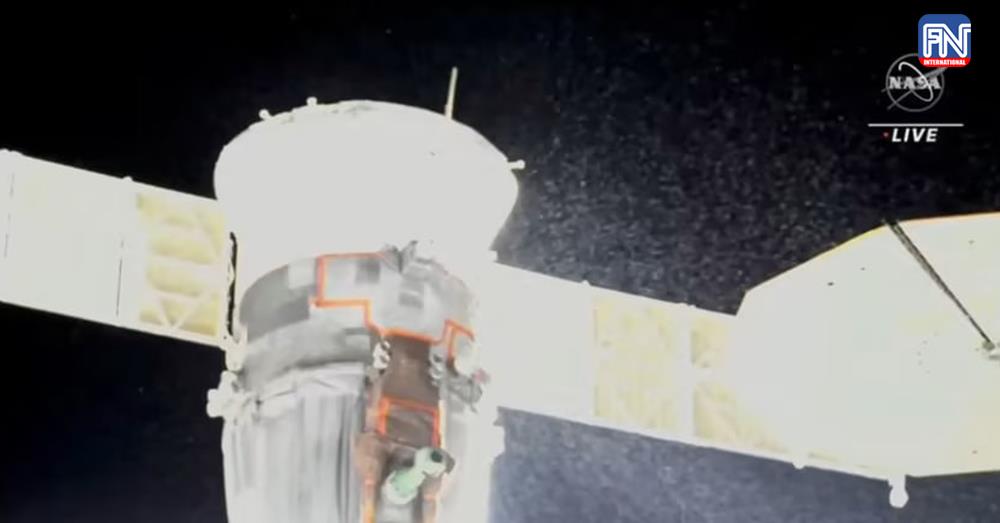WASHINGTON, Dec 22 (AFP) - Russia's space agency said it is considering a "rescue" plan to send an empty spacecraft to the International Space Station (ISS) to bring home three crew members ahead of schedule, after their Soyuz capsule sprang a coolant leak while docked to the orbiting outpost.
Roscosmos and NASA officials said at a news conference on Thursday they continue to investigate how the coolant line of the capsule's external radiator sustained a tiny puncture last week, just as two cosmonauts were preparing for a routine spacewalk.
No final decision has been made about the precise means of flying the capsule's three crew members back to Earth - whether by launching another Soyuz to retrieve them or by the seemingly less likely option of sending them home in the leaky capsule without most of its coolant.
Last week, Sergei Krikalev, Russia's chief of crewed space programs, said the leak could have been caused by a micrometeoroid strike. But he and his NASA counterparts have left open the possibility of other culprits, such as a hardware failure or an impact by a tiny piece of space debris.
The Dec. 14 leak prompted mission controllers in Moscow to call off the spacewalk as a live NASA webcast showed what appeared to be a flurry of snowflake-like particles spewing from the rear of the Soyuz spacecraft.
The leak lasted for hours and emptied the radiator of coolant used to regulate temperatures inside the crew compartment of the spacecraft.
NASA has said that none of the ISS crew was ever in any danger from the leak.
Cosmonauts Sergey Prokopyev and Dimitri Petelin, who were suited up for the spacewalk at the time, flew to the ISS aboard the now-crippled Soyuz MS-22 capsule along with U.S. astronaut Frank Rubio in September.
They were originally due to fly back home on the same spacecraft in March, but Krikalev and NASA's ISS program manager, Joel Montalbano, said Roscosmos would return them to Earth two or three weeks early if Russian space officials decide to launch an empty crew capsule for their retrieval.
Four other ISS crew members - two more from NASA, a third Russian cosmonaut and a Japanese astronaut - rode to the ISS in October via a NASA-contracted SpaceX Crew Dragon and they also remain aboard, with their capsule parked at the station.
